Writing: The Bad Boy Trope
He doesn't need the "Right Girl" - he needs a therapist...
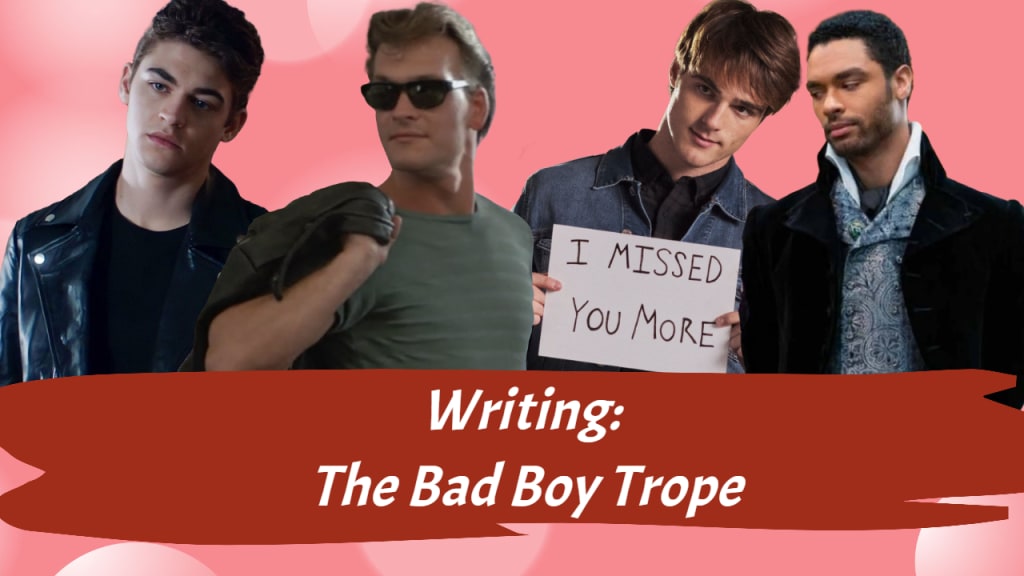
After reflecting on the toxicity of the Not Like Other Girls Heroines, it made me think - what about the guys that these female characters have written for them? That's easy, because the special wallflower or innocent naïve nerd usually ends up with the Bad Boy Love Interest.
As a writer, I usually enjoy writing an Opposites Attract romance - two characters who are vastly different, but gradually find common ground as romantic feelings develop. The Good Character/Bad Character is a good writing technique, because it allows each character to learn from the other and grow as individuals and as a couple.
The Bad Boy is usually the love interest, who pursues the innocent good girl/boy and reignites their first romantic and sexual experiences. However, some writers take the Bad Boy trope to idealise problematic and unhealthy traits and rewrites it as romantic. These Bad Boys are usually self-centred, in need of therapy due to their traumatic past, potentially physically or emotionally abusive, most definitely has trouble keeping their temper or jealousy in check, and will most likely be more interested in the sexual aspect of a relationship than anything else - where he'll usually fetishize his love interest's virginity or lack of sexual experience. This character usually has the alpha persona of an overprotective partner, but severe emotional vulnerability for the heroine to peel the onions of her complicated lover.
There are a few characters who come to mind who fit these character descriptions. Take a look at Hardin Scott from Anna Todd's After franchise: Hardin was remarkably tamed from his book counterpart, who would regularly lose his temper, drink till intoxication, argued every chapter with his love interest (often reducing her to tears) and suffers from severe trauma that neither the books nor films address properly. Hardin is a character who witnessed his mother going through a horrific attack and blames his father, but he treats women with nothing but contempt and sees them as nothing more than sexual conquests.
Realistically, this guy should be in therapy and definitely not in a relationship, but instead this series portrays him being healed of his negative traits by the love of a good woman. This trope goes into quite dangerous territory, as it implies that you need to "fix" your partner - it is no one's job to be the emotional punching bag in a relationship, especially when the other partner is on self-destructive mode constantly. Like his forefathers before him - Sebastian Valmont in Cruel Intentions and Zack Siler in She's All That - Hardin degrades Tessa by betting to take her virginity and she becomes subjected to humiliation and taunts by their peers when he does so. A betrayal like that is unforgivable, but somehow these men are always forgiven and that is another infuriating trend with this type of character.
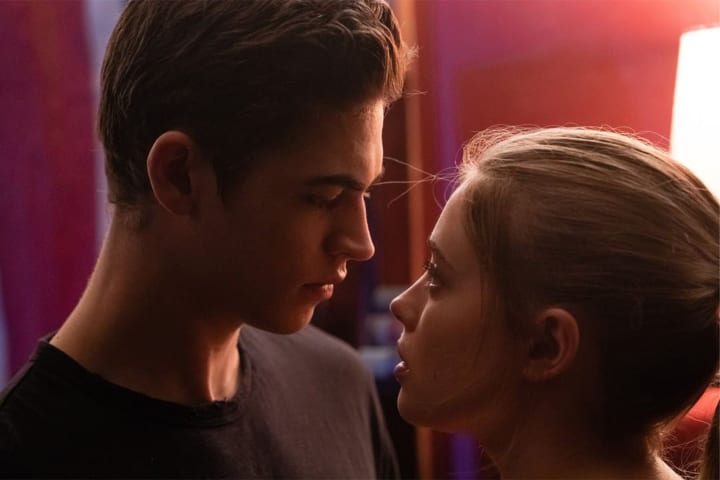
The anger issues trope is consistent in other characters such as Noah Flynn (Netflix's The Kissing Booth), Noah is another character who is "saved" by the love of quirky Elle. Noah is a bit more progressive than Hardin, who never directs mental or verbal abuse at Elle and actually communicates how he feels rather than leaving it to guesswork. However, why Noah has anger issues is never explained - even the character voices that, saying he does not know what triggers his temper.
While flawed Hardin is in desperate need of counselling, Noah is a character that is almost too good to be true - he's handsome, sensitive, athletic, smart enough to be accepted into Harvard and learns to break the unhealthy cycle of his anger problems. He in many ways subverts and embraces the bad boy trope, but is treated more like a fantasy rather than a human being and exists to be the "perfect boyfriend" for the heroine. Ironically, Noah's brother Lee is a much more problematic male character, who serves as Elle's best friend and embodies the Fake Nice Guy Trope - he's a character we'll get into for another day.
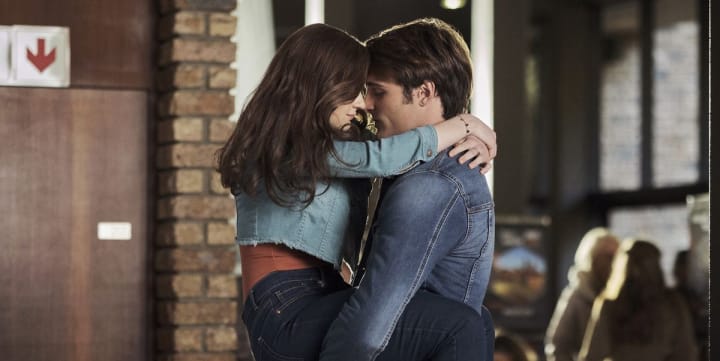
Miscommunication is also a favourite for writing these characters. When their issues can be easily solved by an open conversation, the conflict becomes tedious at times. Simon Hastings on Bridgerton is the definition of a bad boy who won't open his mouth and SPEAK.
Simon is another character who has a difficult past and therefore he has misgivings about becoming a husband and father. These are valid concerns, but his inability to communicate these fears to his wife is what makes his character an infuriating love interest. There was honestly wasted potential in exploring that side of his character, which could have given viewers some interesting scenes - alas, we are treated to long silent looks and arguments instead. Simon is also a character who fetishes Daphne's sexual inexperience - on their wedding night... Beautiful cinematography aside, the dialogue was cringeworthy where he rewarded pleasure in exchange for Daphne inflating his ego. This couple became somewhat bearable when they actually expressed how they both felt.
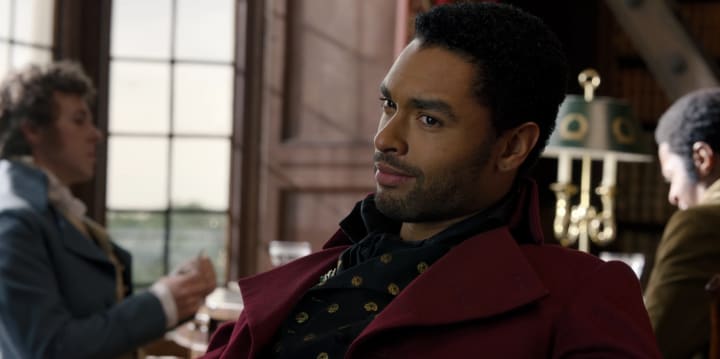
As I stated prior, I actually liked this trope - when it's written well. Two examples of this I can think of are Dirty Dancing's Johnny Castle and A Walk to Remember's Landon Carter. Both characters I feel are good examples of how to write the bad boy love interest without him being unbearable or patronizing your heroine. Both male leads experience their own coming of age arc, losing the bad boy persona as they face their emotional baggage.
Johnny in particular is a character who is seen as no more than a sexual object prior to the start of the film, but actually has his own sexual awakening alongside Baby as they both learn physical and emotional intimacy. Similarly, Landon learns to have an actual relationship without mirroring his parents' messy divorce - when his bad boy attitude hurts his love interest Jamie's feelings, she calls out his behaviour and rejects his offer of friendships. Therefore, the viewers see him working to earn her forgiveness and even defends her when she's the victim of vicious bullying - she does not forgive him out of pity, he proves he cares about her as a friend and later as a love interest.
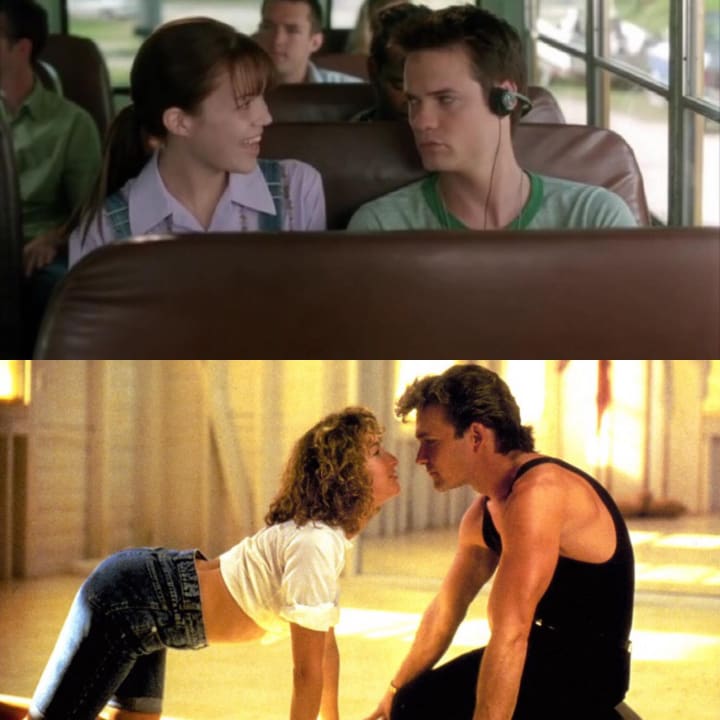
Unfortunately, I think the Bad Boy is here to stay in film, TV and literature. And honestly, I get it - viewers want to see a sexy and complicated love interest swoon over the everyday heroine. That's fine, but don't just make him sexy and mysterious - those aren't character traits. Likewise, romancing traits that are toxic and dangerous are just as bad. The Bad Boy is written much better when he has a heart of gold and has human flaws, but does not rely on the female lead to make him a decent human being... that's something he needs to do as an individual.
About the Creator
Enjoyed the story? Support the Creator.
Subscribe for free to receive all their stories in your feed. You could also pledge your support or give them a one-off tip, letting them know you appreciate their work.





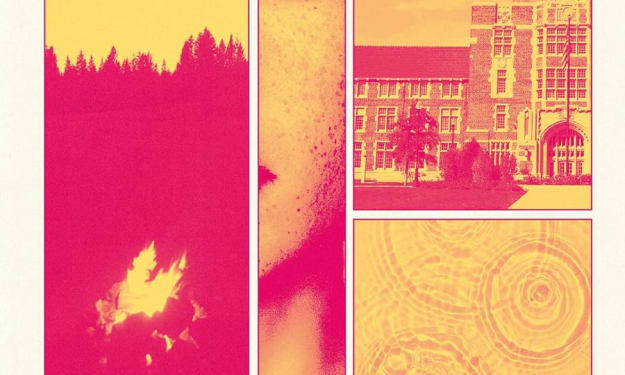

Comments
There are no comments for this story
Be the first to respond and start the conversation.